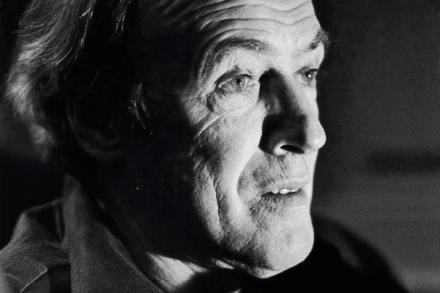Beating his demons | 11 September 2010
Some of us are still startled that Wallace Stevens was 44 when he published Harmonium. So what to make of the fact that Roald Dahl was past the midpoint of his forties when he wrote his first children’s book in 1961, James and the Giant Peach? At the time, he was known as a dark little adult fabulist; macabre like Saki, twisty like O. Henry. A hint as to his view of children’s writing thereto is found in a letter anticipating the birth of his first child: ‘Parenthood is a great strain. I can see it all. Nursery books for Knopf. Once upon a time there was a dear little




















